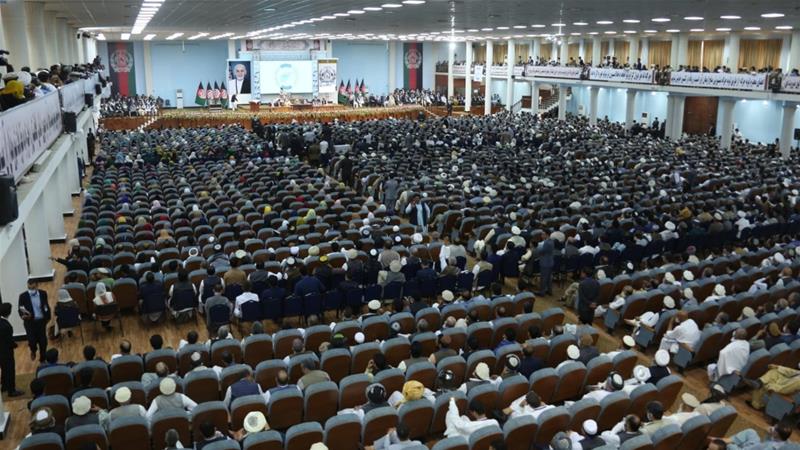Afghan president Ashraf Ghani announced on August 9, Sunday, that the final batch of around 400 Taliban prisoners would be released soon. The decision is likely to pave the way for the beginning of intra-Afghan talks this week in Qatar.
On Sunday, a resolution calling for the release of the pending batch of Taliban prisoners was passed by thousands of local representatives. The resolution said, “The Jirga (local consultative assembly) approves the release of four hundred Taliban prisoners in order to remove obstacles to the start of peace talks and stop the bloodshed.”
The resolution added that the Taliban should also take responsibility for the release of all civilians and military officials in its custody.
The release of the pending 400 Taliban prisoners was repeatedly halted by president Ghani on grounds of them being accused of “major crimes and murders”, charges which Ghani claimed were beyond his domain to pardon.
“People want the bloodshed in the country to stop and the only obstacle blocking the direct negotiation with the Taliban was the release of the prisoners,” one of the jirga members said.
Since the US-Taliban peace deal in Qatari capital Doha in February, no direct talks have taken place between the Taliban and the Afghan government despite several ceasefire announcements in the past one year. Recently, US defence secretary Mark Esper, in an interview, said that the number of US troops present in Afghanistan will be cut down to 5,000 by the end of November 2020.
In the first half of 2020, a total of 1,213 civilians lost their lives while 1,744 others were wounded in at least 880 incidents of violence in the country, as per the Afghanistan Independent Human Rights Commission.





